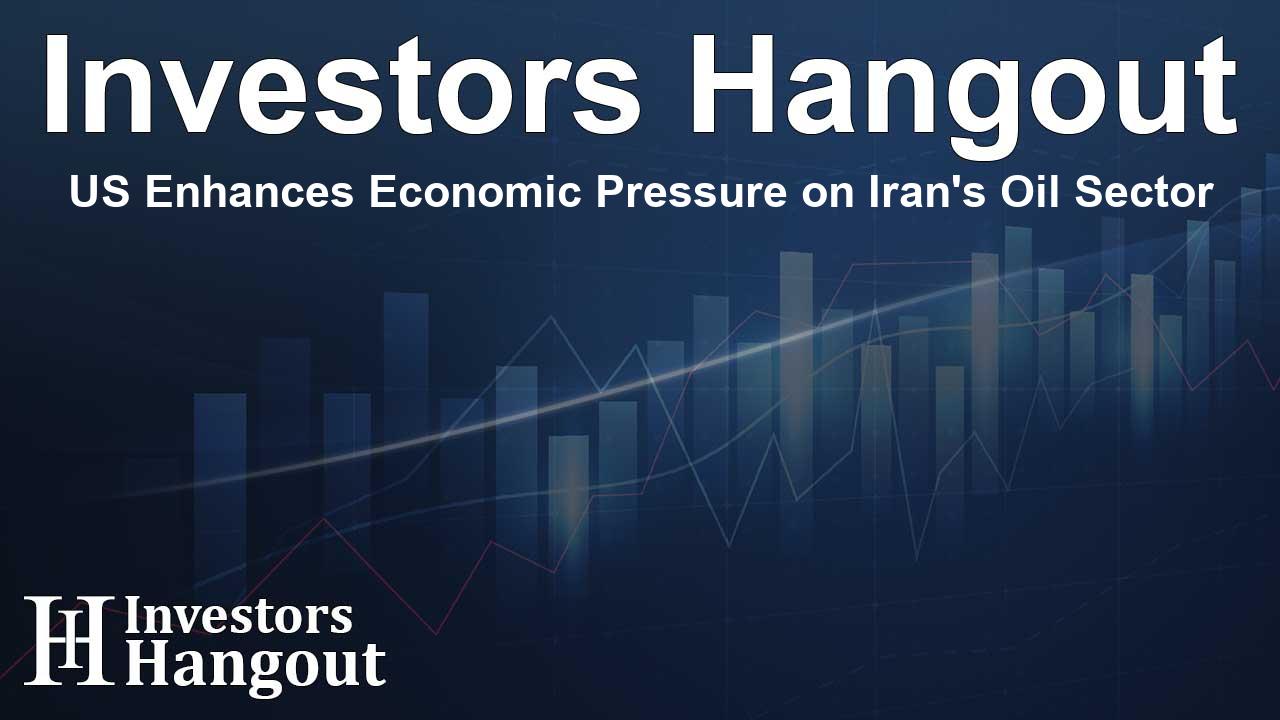US Enhances Economic Pressure on Iran's Oil Sector

US Enhances Economic Pressure on Iran's Oil Sector
The United States has taken significant steps to increase its sanctions targeting Iran's petroleum and petrochemical industries. This decisive action has been introduced in the wake of Iran's missile strikes on Israel, signaling a robust response from Washington.
Intensifying Financial Pressure on Iran
According to the Treasury Department, these expanded sanctions aim to place further financial strain on Iran's economy. The intention behind these measures is to restrict the regime’s capacity to generate vital energy revenues, which are often used to destabilize the region and pose threats to U.S. allies and partnerships.
Key Changes to Existing Sanctions
This initiative broadens the scope of an existing executive order that previously targeted critical sectors of the Iranian economy. By adding the petroleum and petrochemical sectors to the list, the U.S. seeks to cut off significant financial resources that could otherwise support Iran's controversial nuclear and missile development programs.
Designations of Entities and Vessels
As part of this latest effort, the Treasury Department has designated 16 entities involved in the oil trade, as well as 17 vessels identified as blocked property. These designations emphasize the illegal involvement of these entities in the shipment of Iranian petroleum and petrochemical derivatives. Such actions are in direct support of the National Iranian Oil Company, which has been heavily scrutinized due to its ties with the Iranian government.
Impact of the Expanded Sanctions
The implications of these sanctions are profound, not only for Iran but for international oil markets as well. By tightening the financial screws on Iran, the U.S. government hopes to discourage further aggression and maintain regional stability.
Global Reaction to Sanction Measures
Responses to these sanctions have varied across the globe. Some nations and industry players have expressed concerns over the broader impacts on oil prices and regional stability. Nevertheless, the U.S. administration remains firm in its conviction that these measures are necessary to counteract Iran's destabilizing activities.
Conclusion
As the situation evolves, the focus will remain on how these sanctions will affect Iran's economic framework and its potential responses. The U.S. government's strategic approach aims to uphold its national interest while navigating a complex international landscape.
Frequently Asked Questions
What are the recent sanctions placed on Iran?
The U.S. has expanded sanctions against Iran’s petroleum and petrochemical sectors as a response to missile attacks on Israel.
What is the purpose of these sanctions?
The sanctions aim to limit Iran's ability to generate energy revenues, which could be used to fund destabilizing activities.
Which sectors are now targeted by the sanctions?
The new sanctions specifically target the petroleum and petrochemical sectors, building on existing sanctions against other critical economic areas.
How many entities and vessels were designated?
The Treasury Department has designated 16 entities and identified 17 vessels as blocked property related to Iran's oil exports.
What impact might these sanctions have?
The sanctions could lead to increased financial pressure on Iran and further ramifications for global oil markets and regional stability.
About Investors Hangout
Investors Hangout is a leading online stock forum for financial discussion and learning, offering a wide range of free tools and resources. It draws in traders of all levels, who exchange market knowledge, investigate trading tactics, and keep an eye on industry developments in real time. Featuring financial articles, stock message boards, quotes, charts, company profiles, and live news updates. Through cooperative learning and a wealth of informational resources, it helps users from novices creating their first portfolios to experts honing their techniques. Join Investors Hangout today: https://investorshangout.com/
Disclaimer: The content of this article is solely for general informational purposes only; it does not represent legal, financial, or investment advice. Investors Hangout does not offer financial advice; the author is not a licensed financial advisor. Consult a qualified advisor before making any financial or investment decisions based on this article. The author's interpretation of publicly available data shapes the opinions presented here; as a result, they should not be taken as advice to purchase, sell, or hold any securities mentioned or any other investments. The author does not guarantee the accuracy, completeness, or timeliness of any material, providing it "as is." Information and market conditions may change; past performance is not indicative of future outcomes. If any of the material offered here is inaccurate, please contact us for corrections.